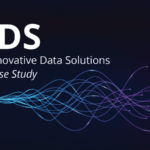By Greg Bucko, Data Consultant

Advanced analytics and AI help non-profits compete like never before
Artificial Intelligence (AI), along with more traditional analytical approaches, can help level the playing field for non-profits by making it easier and significantly cheaper for them to leverage innovative tools that were once only within reach of for-profits with massive technology budgets. With advances in AI technology and the opportunities that AI unlocks, non-profits can harness the power of these tools to increase efficiency and reduce costs while also improving their impact on the causes they serve. To be clear, the AI and machine learning that can help non-profits go beyond just headline-grabbing large language models (LLMs) such as ChatGPT. They include smaller, more purpose-built optimization solutions that may be less flashy, but still deliver enormous value to a non-profit’s operation.
How can Artificial Intelligence deliver value?
Here are just a few examples of how AI, both custom-built solutions and LLMs, could deliver value for non-profits:
-
Analyze data
Non-profits that support animals, such as the ASPCA and the Humane Society, can use statistical tools to analyze demographic and geographic data to identify patterns and trends in animal abuse cases, allowing them to better target public service awareness ads for animal cruelty crimes such as dog fighting or illegal breeding operations. AI can also support these causes by matching animals with potential adopters more effectively, thereby reducing the time and cost of finding homes for animals in need.
-
Optimize supply chains
By leveraging data on food donations and distribution patterns, food banks can use AI to optimize their supply chains and reduce waste and spoilage. AI can also help food banks optimize the balance of nutrients in the meals they are serving, making sure that communities are being provided healthy food that improves lives, especially in communities that are underserved by large grocery store brands. By combining geographical, economic, and health-related data, AI can identify the communities who are suffering from a lack of access to healthy food and therefore target outreach efforts more effectively.
-
Increase efficiency with algorithms
Non-profits that rely heavily on volunteer labor, such as Habitat for Humanity or 4ocean, can use algorithms to match volunteers more effectively with work that they are best suited for within their communities. Optimization models can help distribute materials to the right places at the right time based on factors such as volunteer availability, geography, experience, and community needs. These models could provide an efficient way of sorting volunteers into teams that have the best mix of talents, personalities, and experiences, making for more impactful outcomes.
-
Understand your audience
Political causes focused on environmental or social change can also benefit from the use of AI to improve their impact. For example, natural language processing (NLP) can be used to identify and analyze patterns in social media data to better understand public sentiment and opinion on a particular issue. This can help political organizations tailor their messaging and outreach efforts to better resonate with their target audience. Additionally, data analysis can be used to identify potential swing voters or demographic groups that are more likely to support a particular cause or candidate. The AI language models could then help to formulate the most effective messaging to that group, even providing large-scale personalization.
Expansion of AI leads to innovative solutions
As the use of AI continues to expand in the non-profit sector, those that leverage these powerful technologies will be able to operate more efficiently, save money, and ultimately achieve greater impact in their communities. But it’s important that non-profits think outside of just the AI-driven chatbots currently making headlines and consider how more traditional statistical analyses and optimization algorithms can benefit their operations.
At Keiter Innovative Data Solutions, we understand the unique needs of non-profit organizations and are highly experienced in helping our clients harness the power of AI and advanced analytics. If you’re interested in learning more about how we can help your organization maximize its impact through AI, contact our Keiter Technologies team today. We are here to provide innovative data solutions to help your business improve processes and drive growth.
About the Author
The information contained within this article is provided for informational purposes only and is current as of the date published. Online readers are advised not to act upon this information without seeking the service of a professional accountant, as this article is not a substitute for obtaining accounting, tax, or financial advice from a professional accountant.



